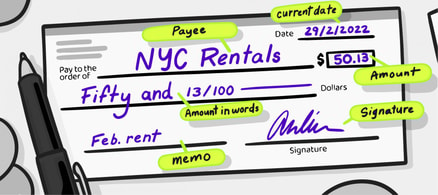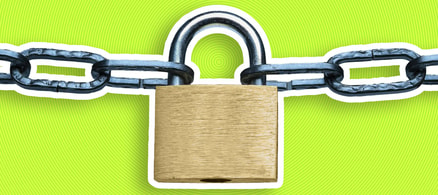How does a checking account work?
A checking account is a bank account for storing cash that you need to keep readily accessible.
You withdraw from your checking account each time you make a purchase with your debit card (unless you specify that you want the money taken from a savings account), e-transfer people money, or write a check.
Streamline your debt repayment
Having a single loan to pay off makes it easier to manage your payments, and you can often get a better interest rate than what you might be paying on credit cards and car loans.
Fiona is an online marketplace offering personalized loan options based on your unique financial situation.
When you consolidate your debt with a personal loan through Fiona, you can roll your payments into one monthly installment. Find a lower interest rate and pay down your debt faster with Fiona today.
Find your rateChecking account fees
Maintenance fees — Banks usually charge a monthly maintenance fee for checking accounts. Fees vary widely, but the average cost of a checking account at the largest U.S. banks is $8.81 per month.
Some checking accounts can cost as much as $25 per month, so make sure you discuss your options with a banking representative. Banks usually waive fees entirely, provided you hold a minimum balance in your checking account.
Review the maintenance fees for basic checking accounts offered by the largest banks in the U.S.:
| Account Name | Maintenance Fee | Min. Balance to Waive Fee | Direct Deposit to Waive Fee |
|---|---|---|---|
| Bank of America Advantage Plus Banking | $12 | $1,500 | $250 |
| BB&T Bright Banking | $12 | $1,500, monthly average | $500 |
| Capital One 360 Checking account | $0 | N/A | N/A |
| Chase Total Checking | $12 | $1,500 | $500 |
| Citi Bank Simple Checking | $15 | $1,500, monthly average | Any |
| PNC Virtual Wallet | $7 | $500, monthly average | $500 |
| SunTrust Essential Checking | $7 | $500 | $500 |
| TD Bank Convenience Checking Account | $15 | $100 | N/A |
| U.S. Bank Easy Checking | $6.95 | $1,500 | $1,000 |
| Wells Fargo Everyday Checking | $10 | $1,500 | $500 |
Monthly transaction fees — Your bank gives you a set number of transactions per month. Going over your monthly transaction limit will result in a fee, so make sure you’re using cash for small expenses like coffees and grabbing lunch. Some accounts offer unlimited transactions, but the maintenance fee might be steeper.
Overdraft fees — Banks will charge you an overdraft fee if you opt in for overdraft protection. It kicks in when you spend more than you have in your checking account.
If you go to pay for $50 worth of groceries and have only $40 in your checking account, you’ll incur a nasty penalty. The median overdraft fee is $35 per transaction at many U.S. banks, according to the Pew Research Center, so remember to always be aware of your balance.
Can you earn interest on a checking account?
The balance in your checking account is contingent upon your expenses and income. Because of the frequent turnover of funds, checking accounts usually accrue no interest.
However, some banks offer high-yield or high-interest checking accounts.
The catch? To qualify for a high-yield checking account, banks may require you to:
- Maintain a higher balance
- Make a minimum number of debit card transactions every month
- Pay at least one bill or other recurring transactions each month
- Set up direct deposits
- Set up e-statements
The extra work can be worth it, as high-yield checking accounts can net you a sweet payout — anywhere from 1% to 5.09% APY. There are also great high-yield saving accounts out there that can net you an impressive APY.
Sponsored
Follow These Steps if you Want to Retire Early
Secure your financial future with a tailored plan to maximize investments, navigate taxes, and retire comfortably.
Zoe Financial is an online platform that can match you with a network of vetted fiduciary advisors who are evaluated based on their credentials, education, experience, and pricing. The best part? - there is no fee to find an advisor.







